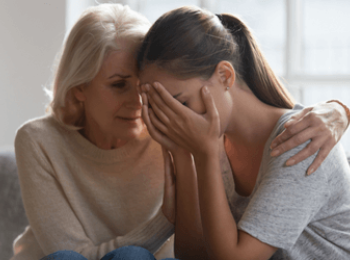What is palliative care?
Palliative care is aimed at improving the quality of life for your mum or dad by looking at their physical, practical, emotional and spiritual needs, and helping your family through this process. It’s not about ending life early and it’s not about prolonging life at all costs – it is about having the most comfortable and highest quality of life until death.
Starting palliative care doesn’t necessarily mean your mum or dad is going to die soon. It does mean that their cancer can’t be cured and they are likely to die from it at some stage. The focus shifts from trying to get rid of the disease (called curative treatment) to palliating symptoms (hence the name ‘palliative care’) and pain and helping them to feel as comfortable as possible. They might receive palliative care for as little as a week or for a year or more.
Being referred to palliative care will most likely be a really tough time for your mum or dad and your whole family. It’s hard to shift your focus from expecting your parent to get better to accepting they probably won’t, and start dealing with new people and a new treatment team.
Your mum or dad can receive palliative care:
-
At home
-
In hospital (there might be a specialist palliative care unit)
-
In a hospice (a place that specialises in caring for terminally ill patients).
Sometimes people move between places depending on the type of care they need.
Depending on their needs, your parent may receive palliative care from their own GP or health care team, or they may be referred to a specialist palliative care team.
Don’t be afraid to ask questions and to lobby for the best care and support available for your mum or dad.
But it looks like they are getting better
Often when cancer treatments are stopped and palliative care begins, people start to look a bit better – your mum’s or dad’s hair might start to grow back and they may even have more energy. The treatments probably made your mum or dad quite weak and ill so when they are stopped, their body starts to recover from the side effects. But unfortunately, the cancer is still there.
There will likely be some good days and some bad days. Take it day by day and, if you can, try to get the most out of the good days together!
Get support
The palliative care team should include a social worker and/or psychologist who can help you and your family talk about your fears and feelings, connect you with support services and tell you about services to help at home. And you can contact a Canteen counsellor for a confidential chat online or by phone.









